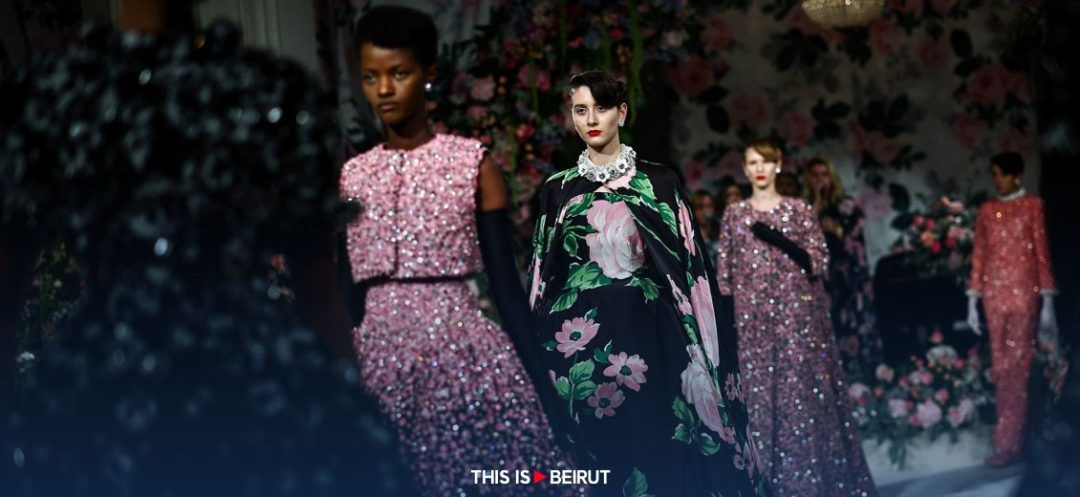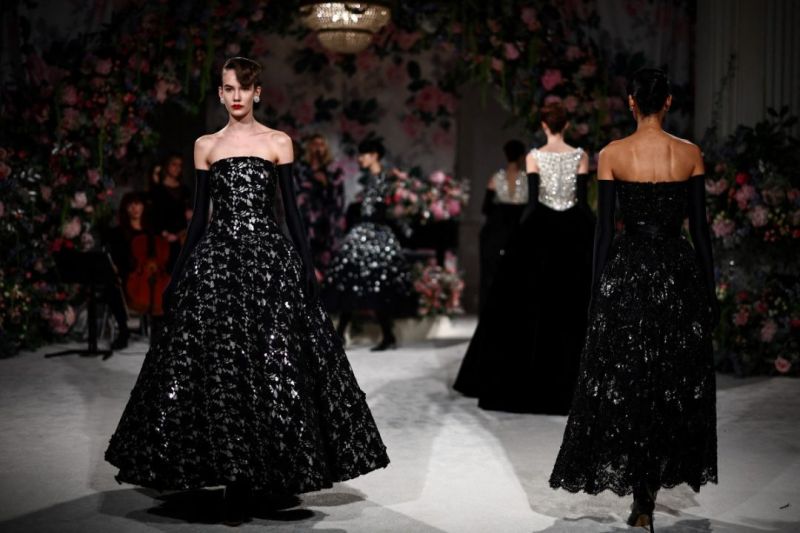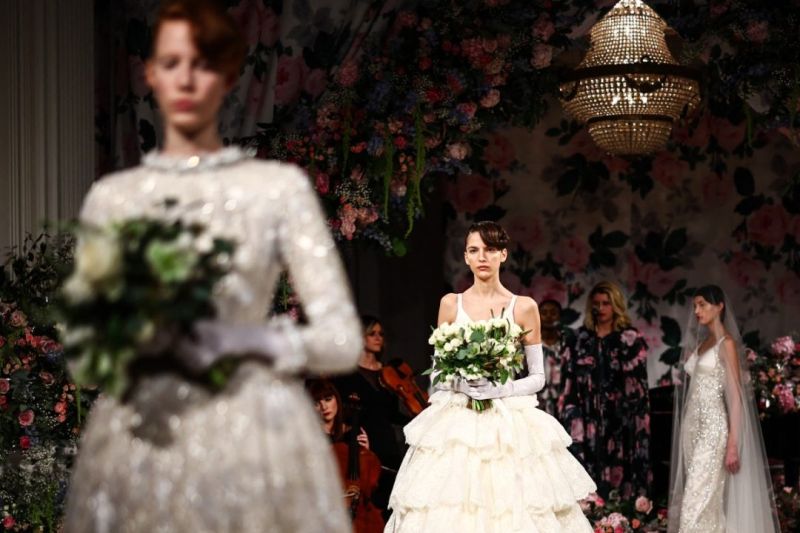
©Models present creations by British designer Richard Quin - Photo by Henry Nicholls/AFP
As London Fashion Week (LFW) marks its 40th season, it unfolds a tapestry of fashion that mirrors the eclectic and evolving nature of the industry. Amid the UK’s economic downturn, LFW kicked off with a display that spanned from the traditional tweed to the iconic low-rise jeans of the early 2000s, showcasing the resilience and creativity of the fashion world.
This year’s event, dimmed by the UK’s challenging economic climate, saw around 60 designers, from emerging talents to established names like Burberry, unveil their latest collections. The event, spanning five days, aims to captivate buyers and fashion influencers despite the gloomy backdrop.
One of the highlights was Irish-American designer Paul Costelloe’s show, “Once Upon a Time,” inspired by the 1984 film “Once Upon a Time in America.” Costelloe, absent due to illness, presented a collection featuring wide-belted coats in shades of ecru, anthracite and checkered tweed, demonstrating the timeless appeal of classic fabrics.
Adding a contrast to the traditional, Ukrainian designer Masha Popova, a favorite among Gen Z, took inspiration from the early 2000s Y2K era. Her collection, set against techno music, featured low-waisted pants and washed-out denim, capturing the nostalgic yet forward-looking spirit of the era.
 Models present creations by British designer Richard Quin - Photo by Henry Nicholls/AFP
Models present creations by British designer Richard Quin - Photo by Henry Nicholls/AFPTurkish designer Bora Aksu offered a more somber reflection, with a collection that sought beauty amidst the darkness. Influenced by sculptor Eva Hesse’s experiences fleeing Nazi Germany, Aksu’s designs featured bodices, lace gowns and flowing skirts in muted tones, punctuated with pink and blush to maintain a feminine energy.
The event also spotlighted British-Nigerian Tolu Coker, whose show transported attendees to an African street scene. With models adorned in beige, brown, and black and white, the runway featured umbrellas, tires, and street signs, creating a vivid tableau that celebrated African culture.
Despite the enthusiasm of the audience, the event comes at a difficult time for Britain’s fashion industry, grappling with post-Brexit trade barriers and an inflation-driven cost-of-living crisis. These challenges have led some emerging designers to reconsider their participation in British fashion events, with notable designer Dilara Findikoglu canceling her show last September due to financial constraints.
The British fashion industry, employing nearly 900,000 people and contributing £21 billion to the economy, faces unprecedented challenges. However, LFW’s director Caroline Rush remains optimistic, believing that economic adversity often fuels creative brilliance. She hopes the event will underscore the importance of culture and creativity in society.
The first British Fashion Week, held in 1984, transformed London from an overlooked venue to a fashion capital, thanks to pioneers like Vivienne Westwood and John Galliano. Despite the competition from Paris and Milan, London maintained its status as a cradle of talent, partly through initiatives like the BFC’s NEWGEN sponsorship program.
 Models present creations by British designer Richard Quin - Photo by Henry Nicholls/AFP
Models present creations by British designer Richard Quin - Photo by Henry Nicholls/AFPThis anniversary edition of LFW not only showcases a diverse range of styles, but also emphasizes greater inclusivity, featuring models of various body shapes, ages and skin colors. The collections draw inspiration from a wide array of cultures, including the Caribbean, Iran, India and Ethiopia, highlighting London’s role as a melting pot of creativity.
As the event progresses, attendees eagerly anticipate shows from familiar names like J.W. Anderson, Richard Quinn, Ahluwalia and Simone Rocha, culminating in Burberry’s much-awaited presentation on Monday evening. Despite the challenges facing the industry, London Fashion Week continues to be a testament to the enduring spirit and transformative power of fashion.
With AFP
Read more



Comments